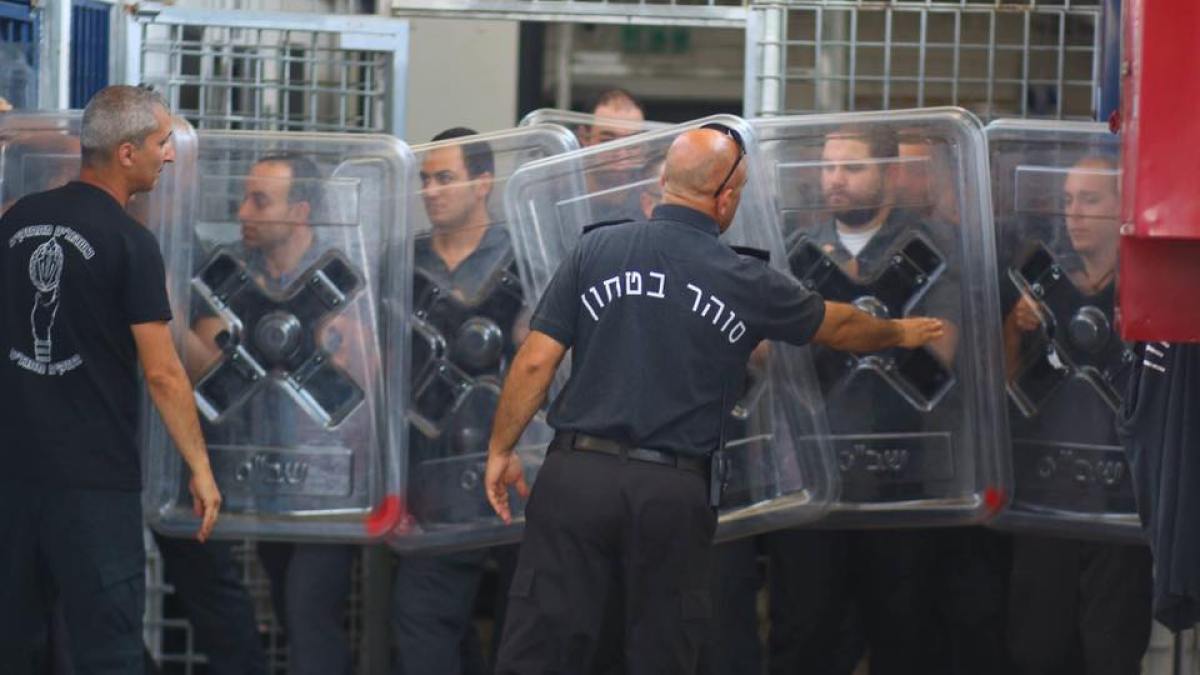Ramallah -
Like all mothers of prisoners, and mothers of female prisoners in particular, the mother of the prisoner, Maysoon al-Jabali, is worried about the escalation in Israeli prisons after the shooting attack in Jerusalem last week, and the occupation's attempt to confront what it describes as manifestations of joy inside the prisons.
The mother, who has been grieving for years in her daughter’s prison, says that the last contact between them was 3 days ago, when the prisoner in the Israeli Damon prison informed her that the occupation had closed the section where she was in for two days, and imposed penalties on her and the rest of the prisoners because of their “showing joy” after announcing the news of the Jerusalem operation, and the prison representative was isolated The prisoner, Yasmine Shaaban, and all electrical appliances were confiscated from the rooms, and the prisoners were prevented from going out to the square, in addition to depriving them of contact with their families.
In the house of the Maysoon family in Bethlehem, the mother, Amna, is waiting for her daughter, who is sentenced to 15 years in prison, to be reassured for the stabbing of an Israeli female soldier in 2015. Today, Amna, like other families of female prisoners, does not find a way to communicate with her daughter, especially as she follows the news that arrives from Damon Prison. It states that the female prisoners tried to burn 3 rooms in the section in protest against the continuation of the punitive measures against them, and that they were beaten and all their belongings were withdrawn.
In her interview with Al-Jazeera Net, Amna says, saddened by sadness, "We live with great anxiety. We do not know the fate of our daughters, who are isolated from the whole world, and everything that happens with them does not reach us until after days."
general alert
What is happening with the female prisoners, who number 29, in terms of repression and imposing penalties following the Jerusalem operation, also included a group of prisoners in the Negev desert prison, where the Prison Service administration punished about 230 prisoners from 3 sections, and transferred them to collective isolation, in addition to storming section 20 in The prison and raided a number of rooms inside it, and beat some of the prisoners.
In their response to these steps, 120 prisoners from Sections 26 and 27 of the prison declared an open hunger strike.
In Megiddo prison, prisoners in two sections were subjected to widespread repression and some of them were transferred to solitary confinement, while Ofer prison, located on citizens' lands west of Ramallah, was completely closed.
Yesterday morning, with news of the suppression and beating of female prisoners, the prisoners announced a general alert in all prisons, and threatened escalating measures if the punitive measures continued, declaring that the female prisoners are a "red danger."
Israel detains more than 4,700 Palestinian prisoners distributed in 23 prisons and detention centers, including 29 female prisoners held in a section of Damon prison, and 150 children in sections of Ofer, Megiddo and Damon prisons.
In this context, the media spokeswoman for the Palestinian Prisoners Club, Amani Saraneh, says that what happened in the prisons is the conversion of the ordinary sections into collective isolation, by withdrawing the prisoners’ daily necessities and electrical tools.
According to Saraneh, the occupation claims that these measures come in the aftermath of the operation, but in fact the confrontation in prisons is an ongoing situation, whether at the collective level or at the level of individuals, and all of this is linked to the repressive measures imposed on the prisoners in recent days by the Prison Service.
Speaking to Al-Jazeera Net, the spokeswoman explained that the confrontation inside the prisons is currently different, as the prisoners are facing higher Israeli decisions to target them, and it is not just procedures related to the prison system of storming and isolation, and these decisions are consistent with the directions of the Israeli government to tighten the screws on them, as described.
A spokeswoman for the Palestinian Prisoners Club, Amani Sarana, believes that the escalation against the prisoners comes in accordance with higher instructions in Israel (Al-Jazeera)
The need for official and popular support
Although the repressive measures are not new, and were repeated more than once in the past, there are indications that they will go beyond punishment, which is what Hassan Abed Rabbo, spokesman for the Prisoners' Affairs Authority, agrees with.
Abd Rabbo says - to Al-Jazeera Net - that the procedures this time are different in their aim, as the occupation authorities are trying to create deliberate tension with a political decision to target the issue of prisoners and their organizational structures, withdraw their legal status as "prisoners of war", and devote dealing with them as terrorists without rights, according to his belief.
To confront all this, Abed Rabbo expected other measures in addition to what the prisoners announced, such as closing prisons and declaring disobedience and rebellion against the prison system, adding, "Prisons may witness sporadic strikes by groups of prisoners, or start implementing their threats to attack the jailers, and other steps that may amount to a strike." Comprehensive lack of food in all prisons.
According to Abed Rabbo, the prisoners' protest steps need official and popular support, and should not be left as "a private confrontation between the prisoner and the jailer."

